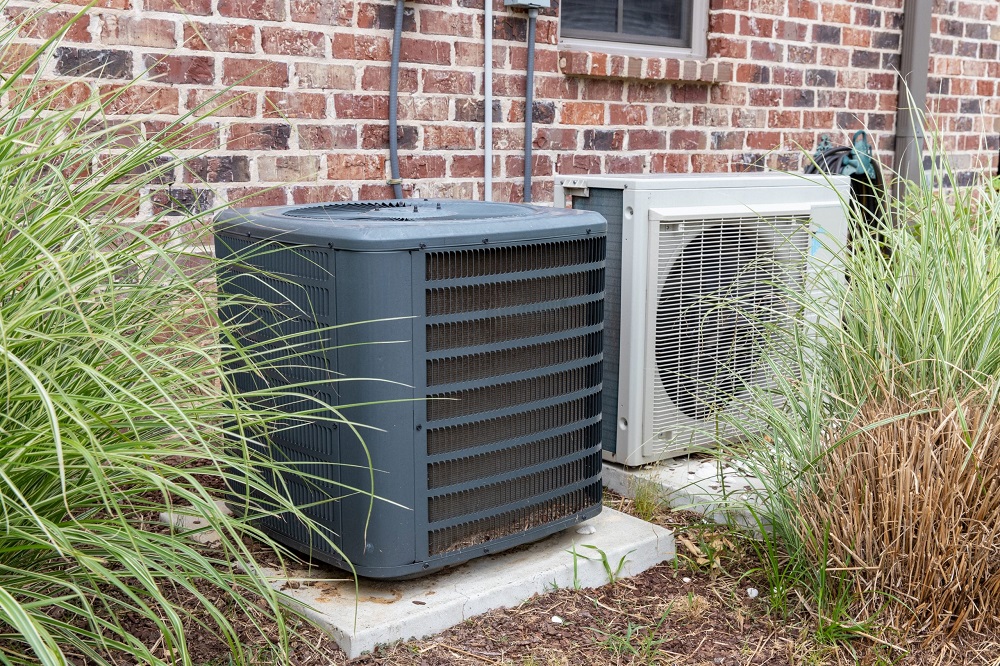6 Ways to Extend the Lifespan of Your Air Conditioner
A well-maintained air conditioner is built to last about 15 years, but if poorly maintained, this lifespan will likely be much shorter. To ensure its longevity and efficient performance, it’s important to be proactive and regularly maintain your AC unit. In this article, we explore several effective ways to extend the lifespan of your air conditioner, helping you get the most out of your investment while avoiding unnecessary repairs.
1. Regular Filter Changes
One of the simplest yet most important steps in maintaining your air conditioner is regularly cleaning or replacing the air filter. Dirty filters can restrict airflow, forcing the system to work harder and increasing wear and tear. All AC units are different, so be sure to follow the manufacturer guidelines for changing or cleaning your filter.
2. Consistent Cleaning
Dirt, debris, and dust will accumulate on the external and internal components of your air conditioner. The condenser coils, evaporator coils, and the surrounding areas should be cleaned once per year to ensure proper airflow and heat transfer. You can do this yourself with a soft brush or vacuum cleaner, or you can hire a professional technician. Be sure to keep the area around the outdoor unit clean and free of plants, furniture, and debris as well.
3. Proper Thermostat Usage
Your thermostat can help reduce the strain on your air conditioner. Set your thermostat to a moderate temperature and avoid drastic temperature adjustments, as frequent cycling can put unnecessary stress on the system. Consider a programmable or smart thermostat to automate temperature settings and optimize energy efficiency.
4. Regular Professional Maintenance
It’s important to get your AC unit regularly inspected and tuned-up. Professional maintenance can identify and address minor repairs before they escalate, optimize system performance, and ensure all components are in proper working condition.
Click here to see what else you can expect from an AC tune-up.
5. Maintain Proper Insulation
Well-insulated homes retain cool air better, reducing the workload on your air conditioner. Ensure proper insulation in your walls, ceilings, and ductwork to minimize heat transfer and optimize cooling efficiency. Seal any air leaks around windows, doors, and other openings to prevent conditioned air from escaping. You or a home inspector can easily pinpoint any areas in your home that are poorly insulated with a thermal leak detector.
6. Protect from Direct Sunlight
Shielding your outdoor condenser unit from direct sunlight can help prevent overheating and improve its efficiency. Consider installing a wall or using a cover to protect the unit from excessive sun exposure and make sure you do not inhibit airflow.
In need of an AC tune-up or have any questions? Grand Home Services in Aurora, Colorado is here to help. We provide AC tune-ups, repairs, and replacements throughout the Denver Metro Area. Call us or contact us online today.
AC Refrigerant: Everything You Need to Know
AC refrigerant is a vital component of your air conditioning system, responsible for transferring heat and cooling the air. Below, we provide you with everything you need to know about AC refrigerant. If you ever have any questions or concerns about AC refrigerant, always consult a professional HVAC technician.
What is AC Refrigerant?
AC refrigerant is a chemical that absorbs heat from indoor air, carries it to the outdoor condenser unit, and releases it into the surrounding environment. It continuously changes from a low-pressure gas to a high-pressure liquid and back to a gas, facilitating heat transfer and cooling.
2 Types of AC Refrigerants
- R-22 (Freon): R-22 was commonly used in older AC systems but is being phased out due to its harmful environmental impact. Its production and import have been banned in several countries. It is being replaced by more environmentally friendly alternatives.
- R-410A: R-410A—also known as Puron—is the most widely used refrigerant today. It is chlorine-free, ozone-friendly, and is very efficient. AC systems designed for R-410A are more energy-efficient and comply with environmental regulations.
Refrigerant Efficiency and SEER Ratings
The efficiency of AC refrigerants is measured by the Seasonal Energy Efficiency Ratio (SEER) rating. Higher SEER ratings indicate greater energy efficiency and cost savings. AC systems using newer refrigerants like R-410A tend to have higher SEER ratings. Click here to learn more about SEER ratings.
Refrigerant Leaks
Refrigerant leaks can be caused by aging components, corrosion, or physical damage to refrigerant lines. Signs of a refrigerant leak include reduced cooling, longer cooling cycles, frozen lines, or hissing sounds near the AC unit. If you suspect a refrigerant leak, call for an emergency AC repair as soon as possible.
Proper Refrigerant Charge
Correct refrigerant charge is crucial for your air conditioner’s performance. Too much or too little refrigerant can lead to decreased cooling efficiency, increased energy consumption, and potential damage to the compressor.
If your AC system requires a refrigerant recharge, it is crucial to hire a professional HVAC technician. They will repair any leaks before adding refrigerant to the system. Attempting to recharge refrigerant yourself without addressing leaks can lead to wasted refrigerant and environmental harm.
Note: if a technician says you need a recharge and does not check for leaks, this is likely a scam. Refrigerant runs through a closed system and does not run out. Click here to learn more about common HVAC scams.
While it is helpful to know about AC refrigerant, certain things should be left to a professional, including choosing the right refrigerant type, ensuring proper refrigerant charge, and addressing leaks.
In need of AC maintenance in the Denver Metro Area? Grand Home Services in Aurora, CO provides AC replacement, tune-up, and repair services throughout Denver. Call us or contact us online today.


